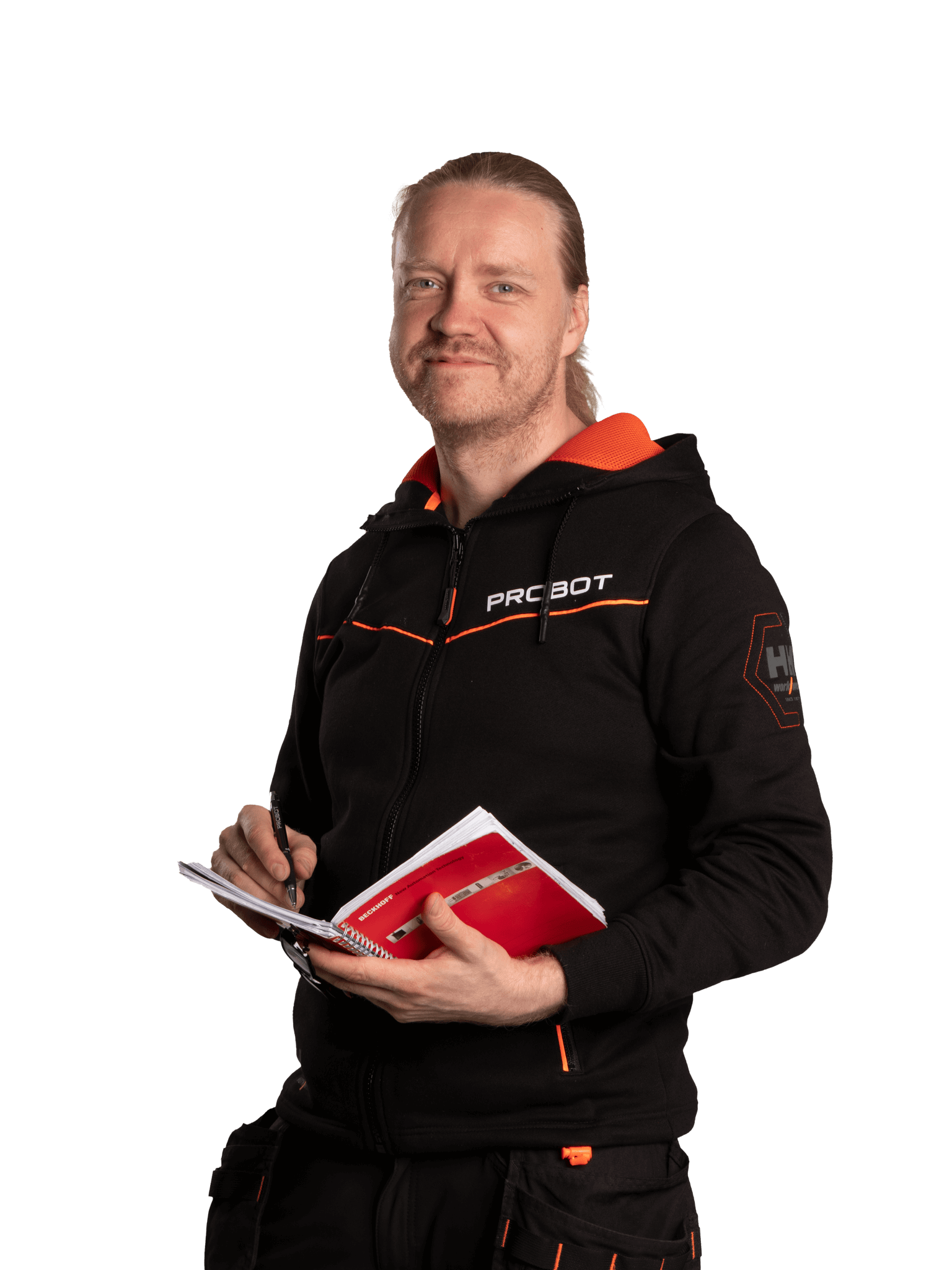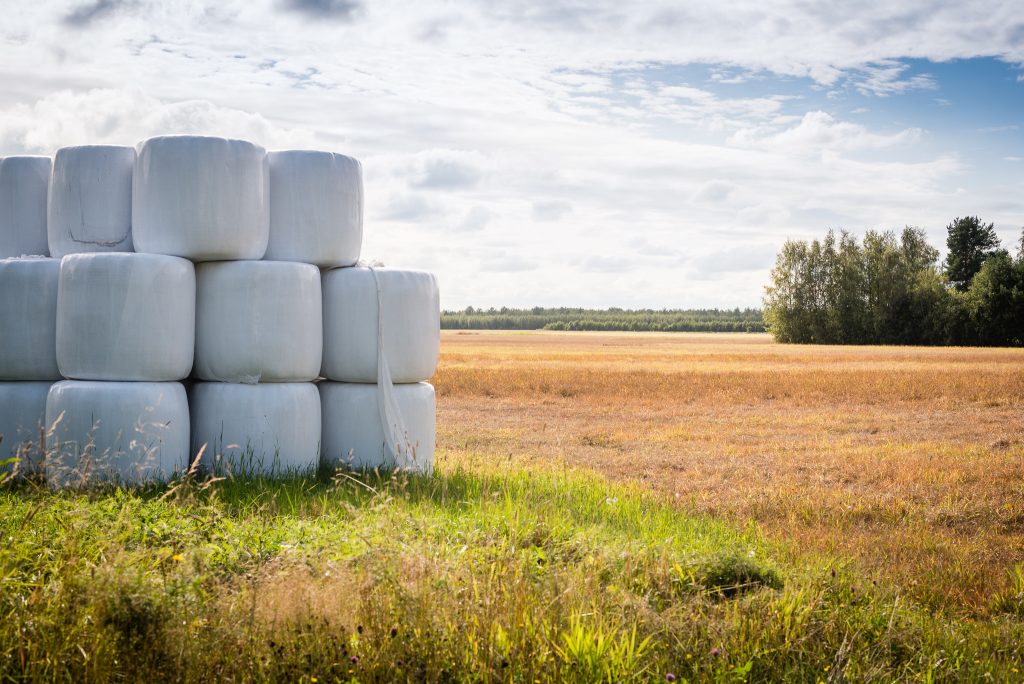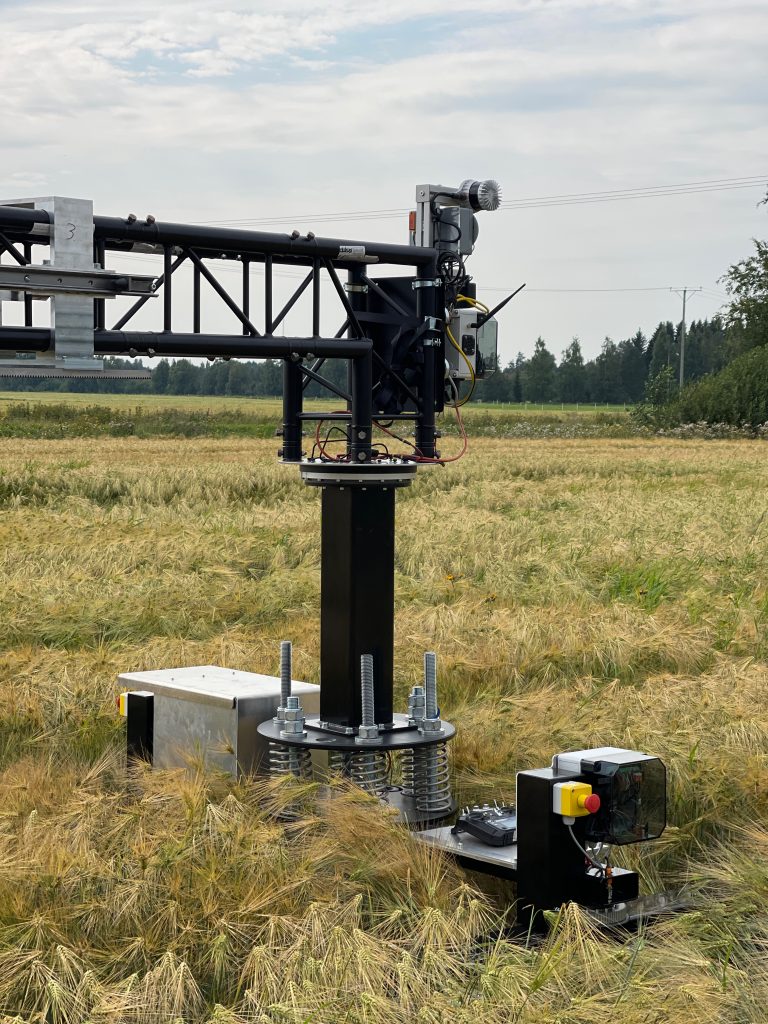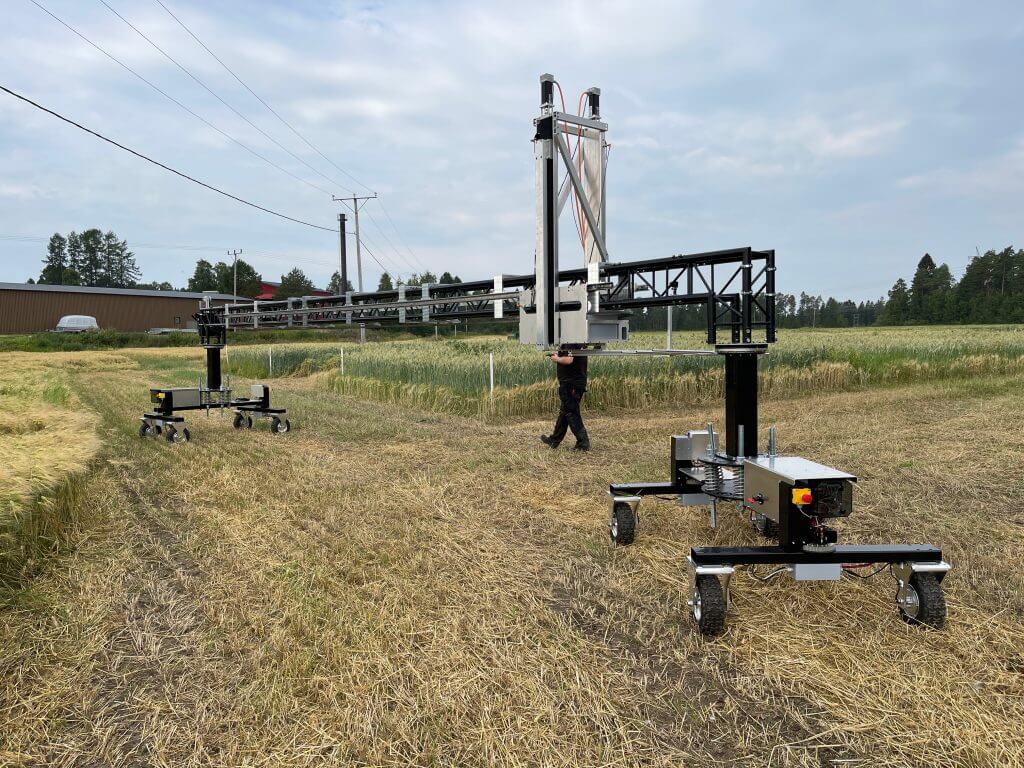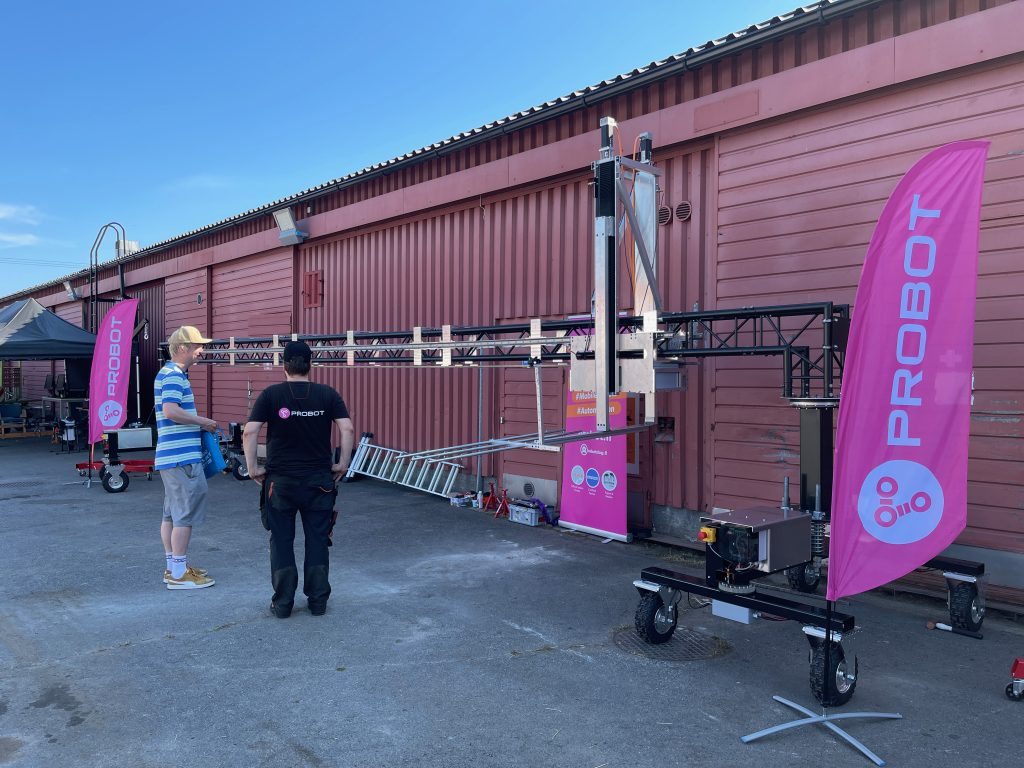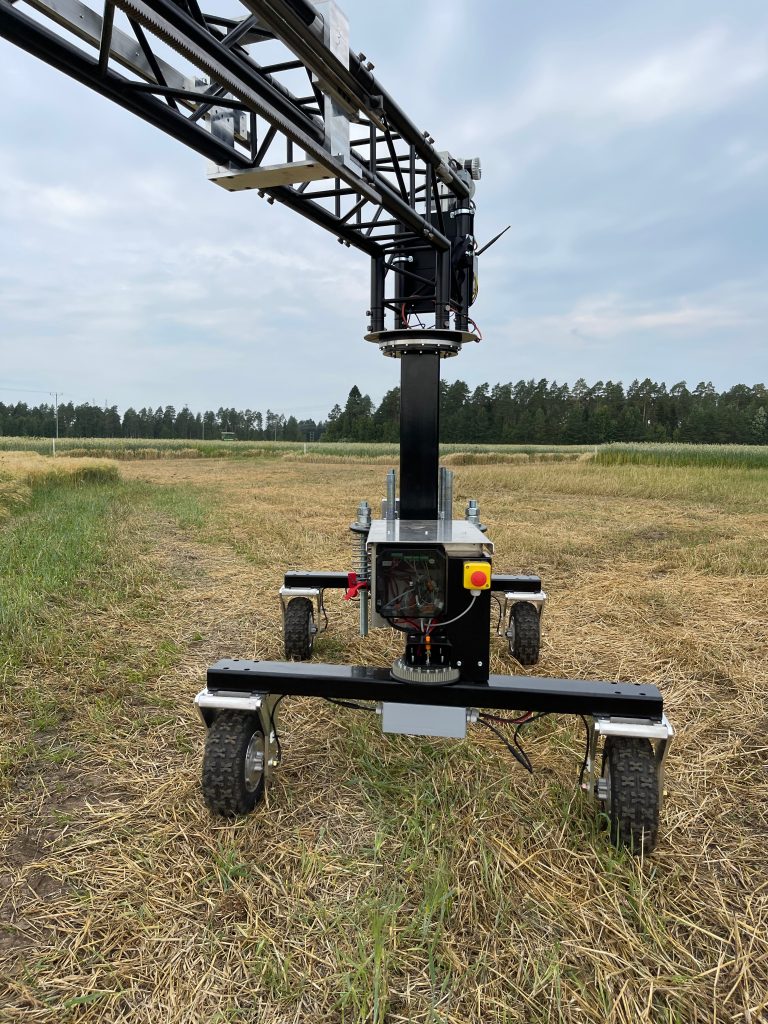Contact us
EU project
FlexiGroBots
The aim of the EU-funded FlexiGroBots project is to develop a new open platform for the task management of heterogeneous multi-robot systems to improve the efficiency of precision farming. The platform also enables versatile use of the robots for different tasks and functions.
To validate the solutions developed in FlexiGroBots, three real-life pilots have been defined for three cultivated plants. We’re involved in pilot 2. In the pilot, we utilise the robot developed in the AgROBOfood project.
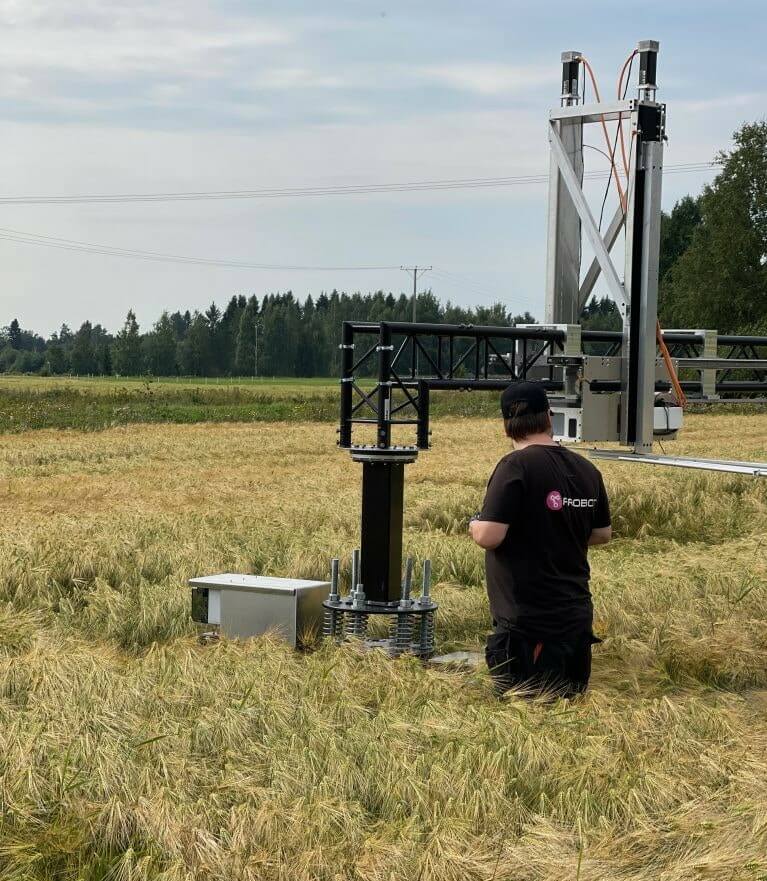
EU project
FlexiGrobots
The FlexiGroBots project is developing an innovative platform that aims to enable:
- Versatile use of the same robots in various observation tasks and other functions throughout the crop lifecycle.
- Performing complex tasks related to collaboration between land and air robots.
- More valuable data for performing agricultural tasks with the help of AI.
- More autonomy in real-time adapting mission plans and robot operations given the gathered conditions and insights.
- Accuracy in performing agricultural tasks, reducing costs and ecological footprint.
To validate the solutions developed in FlexiGroBots, three real-life pilots will be carried out involving three different crops with the potential for producing significant economic value through the introduction of flexible heterogeneous multi-robot systems. These include Pilot 1: Grapevines in Spain, Pilot 2: Rapeseeds in Finland and Pilot 3: Blueberries in Serbia and Lithuania. We’re involved in the pilot carried out in Finland.
The project participants include 16 partners, VTT, Mtech Digital Solutions and Natural Resources Institute Finland (Luke). The other partners include Atos (Spain), which is also the project coordinator, Spanish National Research Council – CSIC (Spain), Seresco (Spain), Bodegas Terras Gauda (Spain), Centre for European Policy Studies -CEPS (Belgium), Wageningen University & Research (Netherlands), International Data Spaces Association – IDSA (Germanya), BioSense Institute (Serbia), Zeleni hit (Serbia), Art 21 (Lithuania), AgriFood (Lithuania) and Agrosmart (Latvia).

FlexiGrobots
Pilot 2 – Rapeseed
The pilot organised in Finland in the FlexiGrobots project demonstrates time-critical pest management and robotisation of heavy machinery fleets in rapeseed cultivation and grassland management. Sustainability from both an environmental and economic perspective is a key premise of the project. Precision pest management aims to reduce pesticide use, which can be achieved by spraying only on the required hotspots. Robotisation can enable getting more out of the existing fleets and allows the automation of various agricultural tasks.
In practice, the Finnish pilot will involve rumex plant weeding in grasslands using unmanned ground vehicles (UGV) and collecting data on rapeseed fields using unmanned aerial vehicles (UAV). The project will utilise the data collected in other operations (e.g. determining the hotspots for pesticide spraying) and use drones to supervise autonomous tractors. Meanwhile, robotised tractors are used to perform typical precision farming tasks utilising the ISOBUS method, including silage production tasks and pesticide spraying on fields.

Kuvia FlexiGroBots projektin varrelta
